10 live mistakes every guitarist makes
Playing live can be stressful but avoiding these mistakes will ensure your show goes off without a hitch
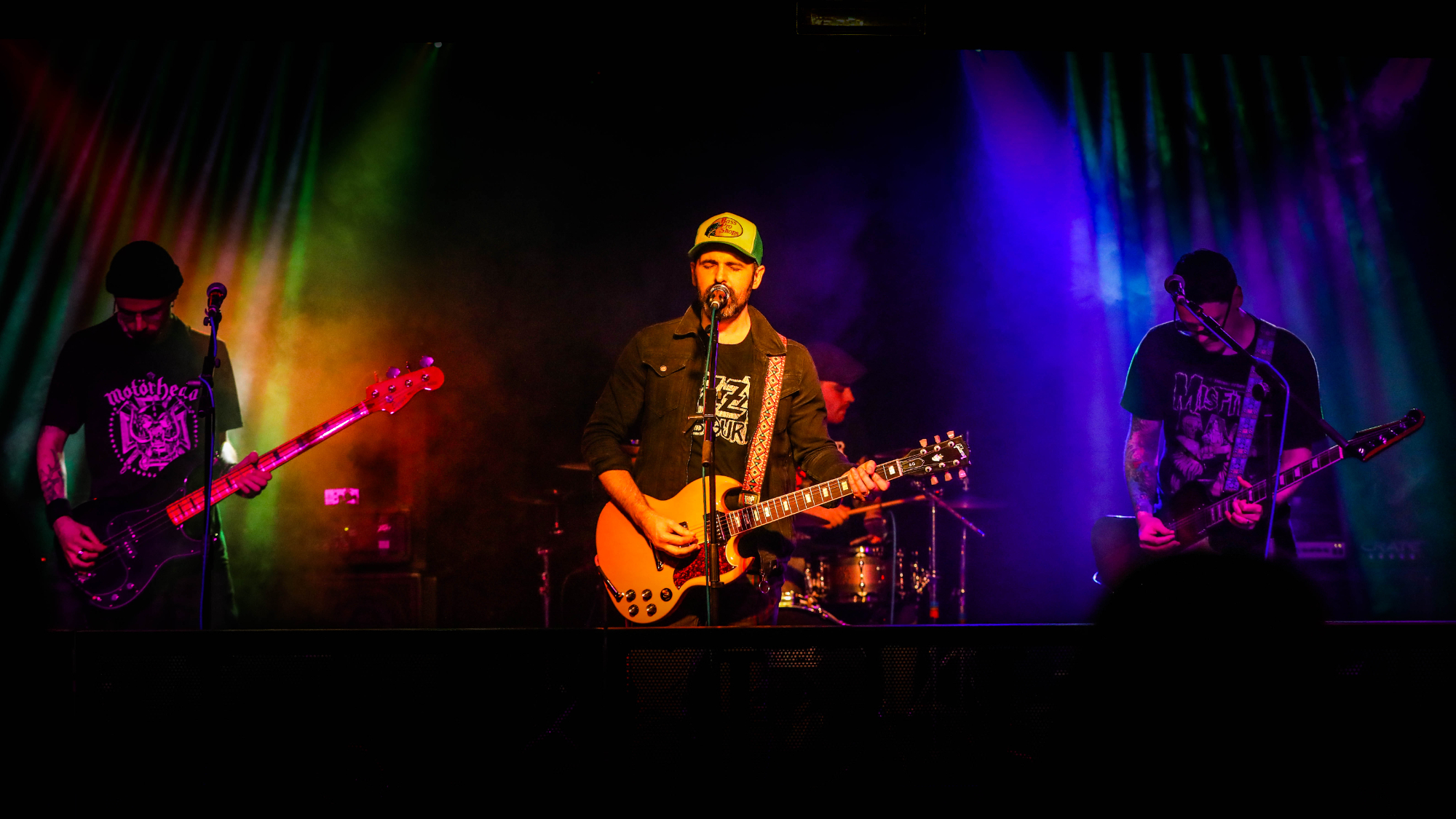
There's no feeling quite like getting up on stage and pouring your heart out. Playing live with a band – or as a solo musician – is supposed to be transcendent, but if something goes wrong, it can sour the experience for you and your audience. Well, don't worry, Guitar World is here to make sure all your shows from this day forward go off without a hitch – as long as you avoid making these ten live mistakes every guitarist makes.
I've been playing guitar in bands – of varying quality – for the best part of 20 years. From punk to metal, blues to alternative, '70s classic rock and '50s rockabilly, I've done a wide range of concerts in my time. Away from playing guitar in bands, I also have a passion for live sound, having worked as a sound engineer in a number of venues around Scotland. So, with that in mind, the tips in this guide come from a place of real-world experience and are things I've either done myself while on stage or have witnessed from the other side of the mixing desk.
Regardless if you're a seasoned professional or a rookie prepping for your first gig, there are sure to be a few tips and tricks in here that will dramatically improve your live show – for you and those watching. So, without further ado, let's dive into the ten live mistakes every guitarist makes.
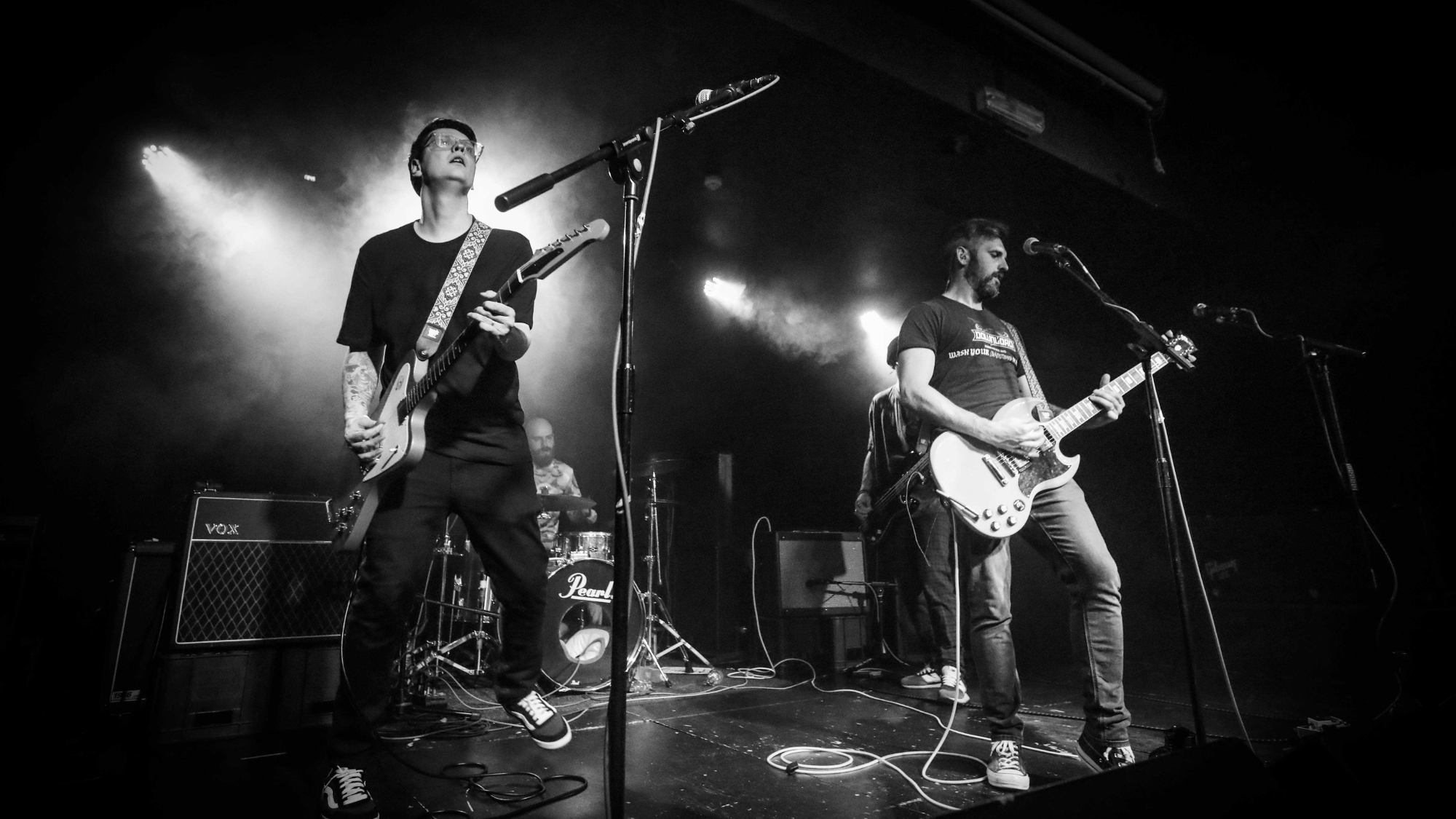
1. Not being prepared
The number one mistake I see time and time again at shows is musicians not being prepared. Unfortunately, it's not enough to be musically prepped for the gig, you also need to have a backup plan for when things go wrong with your equipment.
Even though I'm not one to switch guitars throughout the set, I always have a backup guitar in case my number one axe decides to fail. I'll also have spare electric guitar strings, leads, batteries, picks, and an extra guitar strap on hand – and for more high-profile gigs, I even take a spare amplifier.
Basically, you should think about anything you couldn't do the show without and make sure you have a failsafe in case things do go catastrophically wrong – because we all know if it can go wrong, it probably will while you're on stage.
2. Trying to use a "bedroom" tone on stage
While practicing at home, at one point or another all guitarists have a eureka moment where they dial in the ultimate guitar tone. It's thick, full-frequency, has plenty of gain and every note sings out with infinite sustain – there's only one problem, it doesn't translate to a live setting.
Get The Pick Newsletter
All the latest guitar news, interviews, lessons, reviews, deals and more, direct to your inbox!
When practicing scales and licks at home alone, you can afford for your guitar tone to take up more of the frequency spectrum, but in a band scenario, you want your tone to leave enough space for the other members.
Generally speaking, you'll want to reduce the low-end so that the kick drum and bass have space to breathe and you may want to tame the mids slightly so you don't get in the way of the vocals. It's also worth noting that you don't need anywhere near the amount of gain you think you do, and you can certainly dial the reverb back as you are already playing in a fairly large space.
3. Not sound-checking correctly
For me, sound-checking correctly is a surefire way to separate your band from the rest of the local acts and establish yourselves as a professional outfit. The sound-check is used to make sure everyone on stage is happy with the sound, the balance of the microphones is good and each member can hear each other. It's not a free band rehearsal or the time to make decisions about the setlist.
More often than not, a band will get up on stage and play through entire songs before stopping and saying, "I need more vocals in my monitor". Not only is this not a useful note once you've stopped playing, but going through an entire song is a waste of time.
Instead, I suggest playing a short section of a song, making sure it's something that has dynamics and eventually has everyone playing and singing. Also, speak to your sound engineer throughout, letting them know exactly what is wrong with your monitor mix so they can fix it in real-time.
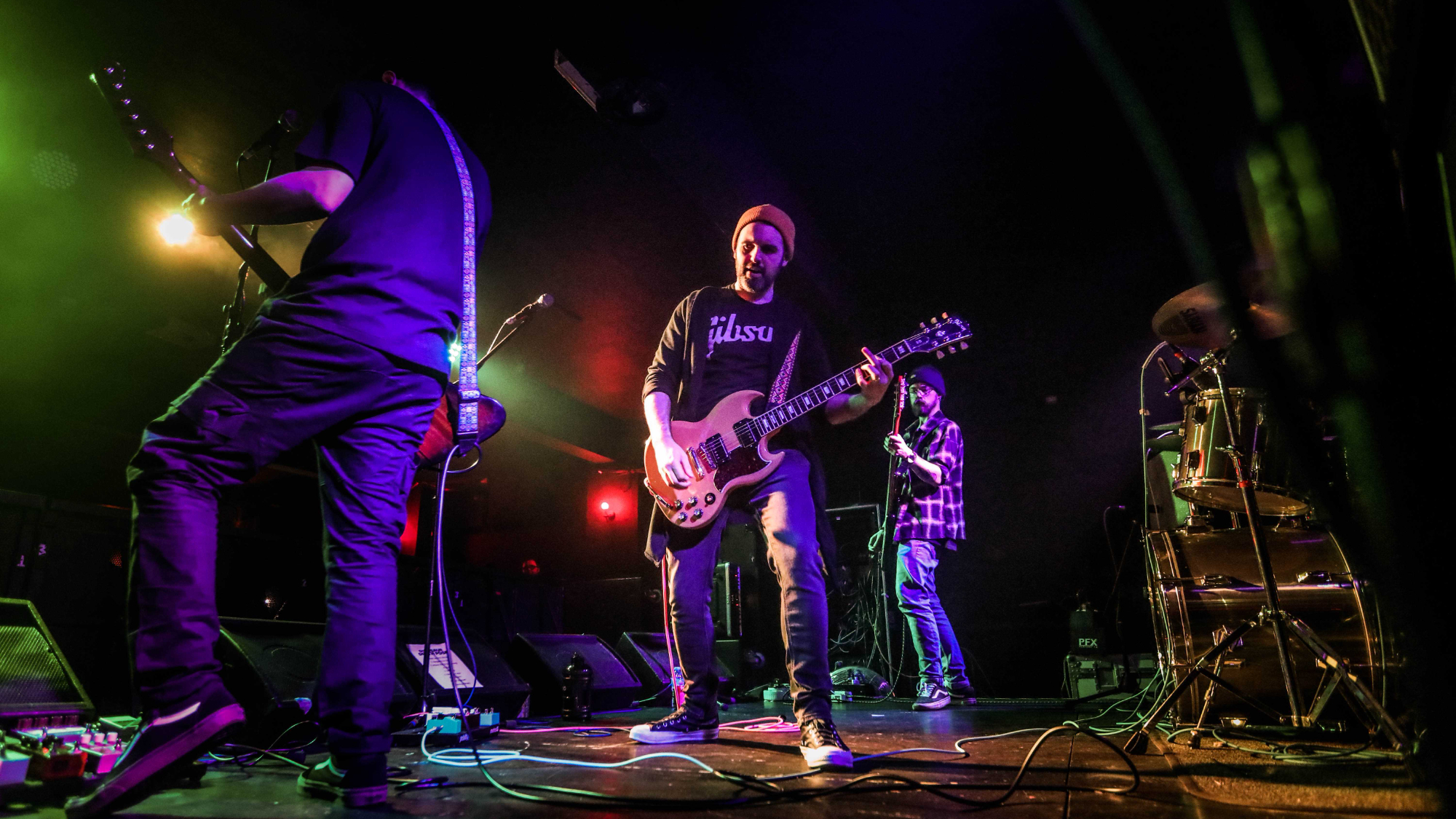
4. Playing too loud
Okay, as guitarists, we love to be the center of attention, but in a live situation, we really don't need to be so goddamn loud. If we have our amps blisteringly loud on stage, it means the sound engineer has less control over the rest of the mix and ultimately, that will lead to a worse sound overall.
Of course, this also makes it more difficult for the rest of the band to hear their own instruments. So be mindful of your volume level and dial it back – even just a little. You may be surprised by the results.
5. Not tweaking pedal settings for new venues
If you're in a band that tours around different venues, you'll have noticed that each new environment sounds different from the last. Now, most guitarists don't give a second thought to changing the amp settings from venue to venue but will rarely look down at the pedalboard at their feet.
Everything from the gain of your favorite overdrive pedal to the intensity of the reverb should be adjusted slightly to suit the new venue. Now, don't get us wrong, we're not suggesting that you completely overhaul your settings, but have a listen to your guitar in the new space and make adjustments to ensure you sound your best.
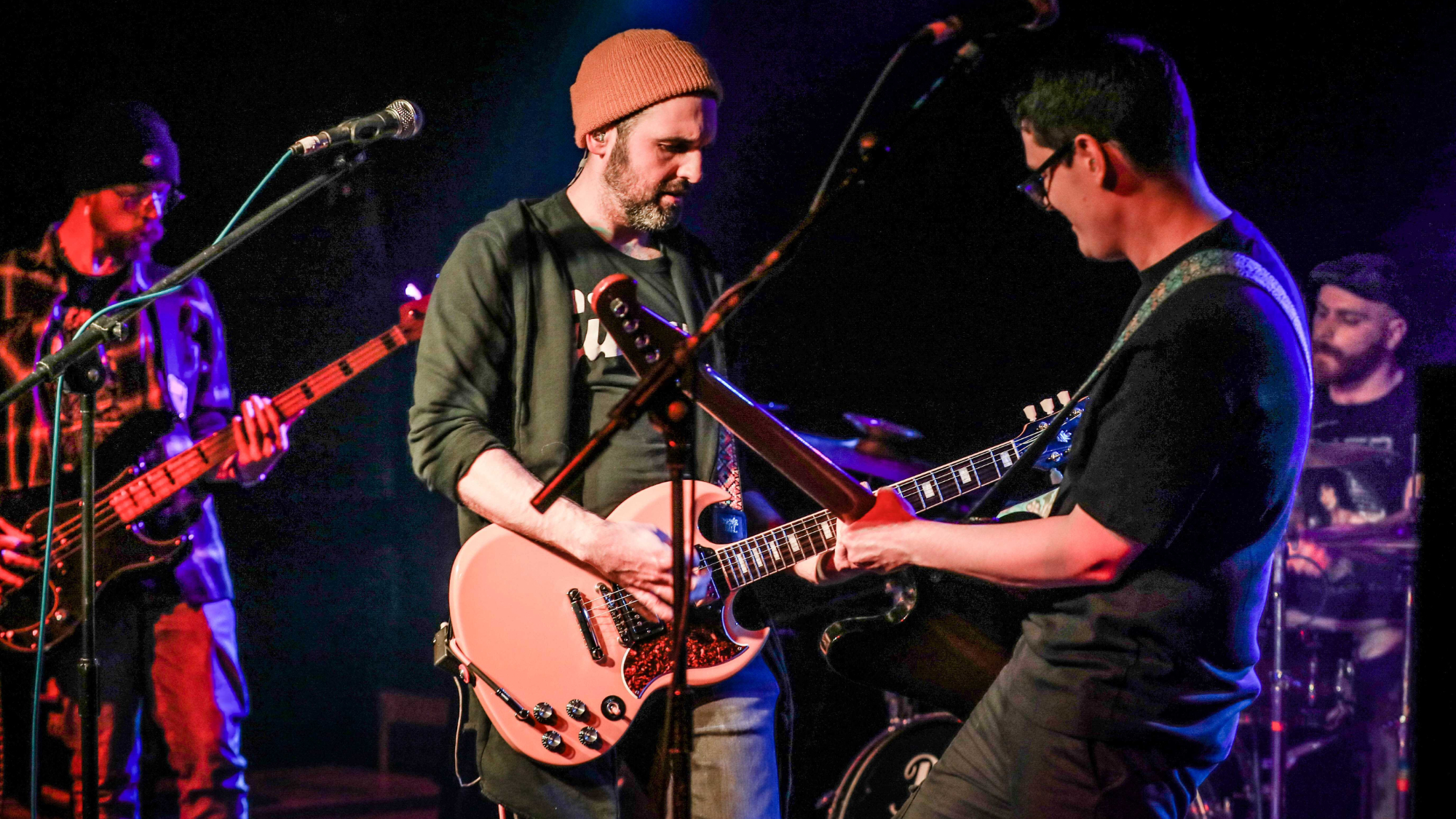
6. Lack of interaction with bandmates
We guitarists have a tendency to get a little up in our own heads sometimes, and this can show on stage. It's understandable, we've spent hours, days and weeks crafting the perfect guitar line and we want to make sure we nail it live. That said, in the pursuit of perfection, we can often forget to let loose and enjoy ourselves.
We need to remember that the audience is there to see the full band as a unit and isn't that interested if the guitarist plays the exact sweep-picking run he did on the record. So with that in mind, make sure you look up from your fretboard once in a while and start interacting with your bandmates.
At the end of the day, a band's performance lives and dies with the chemistry between the members on stage, so don't worry so much about nailing the parts that you forget to perform them.
7. Noodling in between songs
Okay, so how many times have you been at the show of a major artist and heard the guitarist randomly rip through a flurry of quick pentatonic licks in the gaps between songs? Never, right? This is why it's so baffling that local guitarists do it all the time.
Once a song ends, the band should be primed and ready for the next tune, not practicing that elusive tapping lick from Eruption. Again, this comes down to professionalism and your band showcasing that they are a well-oiled machine – so, for the love of God, shut up!
8. Not bringing your own equipment
Now, this has to be the most puzzling one on this list and may be the most common. I see plenty of guitarists rock up to a venue without the equipment they need to perform, expecting other bands to help them out.
Don't get me wrong, I'm all for bands sharing a backline – in fact, I encourage it – but I do expect musicians to turn up to a show with the bare essentials. At shows, I've had fellow musicians ask to borrow everything from leads to tuners, power supplies to speaker cables and even a guitar! Oh, and one player asked to borrow a pick minutes before he went on stage.
Sharing amps and drum kits is totally fine and completely normal at local shows, but please discuss what other equipment you need with the venue, promoter and other bands well before the day of the gig – that way there's time to arrange it.
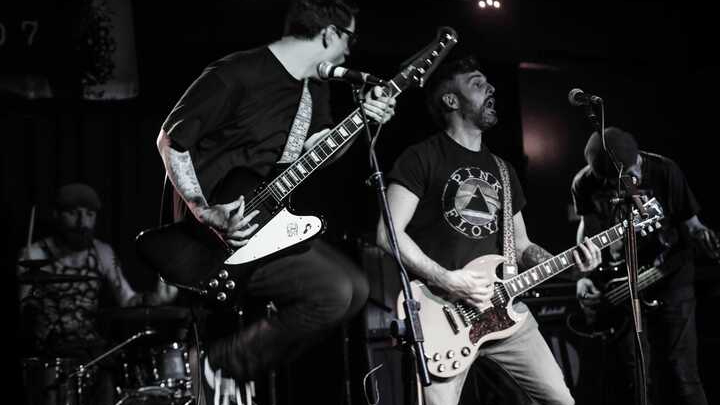
9. Using an amp with no headroom
With amplifiers getting smaller and more hi-tech, it's becoming increasingly likely to see pint-sized heads on stage. Now, while these amps do offer an insanely portable option that often sounds just as good as their larger counterparts, players can run into problems when they want to stack gain pedals or boost their sound for a solo.
This is more of a problem with smaller wattage valve amps around the 10 to 20 watt range. While an amp of this size is perfectly fine to gig with and often more than loud enough to compete with a drummer, the small wattage means they don't have a great deal of headroom. You can quickly max out the volume just getting it to the perfect stage level, rendering your boost pedal redundant.
So if you are experiencing this problem, we suggest you look at a higher headroom, higher powered option for your next show.
10. Not wearing earplugs
As a musician, your ears are the most important piece of equipment you have, so maintaining them is vital. To ensure you don't succumb to the horrible fate of the phantom ringing that is tinnitus, you really should wear earplugs.
As well as helping you safeguard your hearing, wearing earplugs on stage can also help with hearing your bandmates more clearly and even make pitching those backing vocals a little easier. So with that in mind, there is no excuse not to wear them!
Looking for the ultimate live rig? Our buyer's guides are here to help
- These are the best electric guitars under $1,000
- These are the best electric guitars available today
- Plug in with the best guitar cables for all budgets
- Play loud with the best guitar amps under £1,000
- Protect your axe with the best guitar cases and gig bags
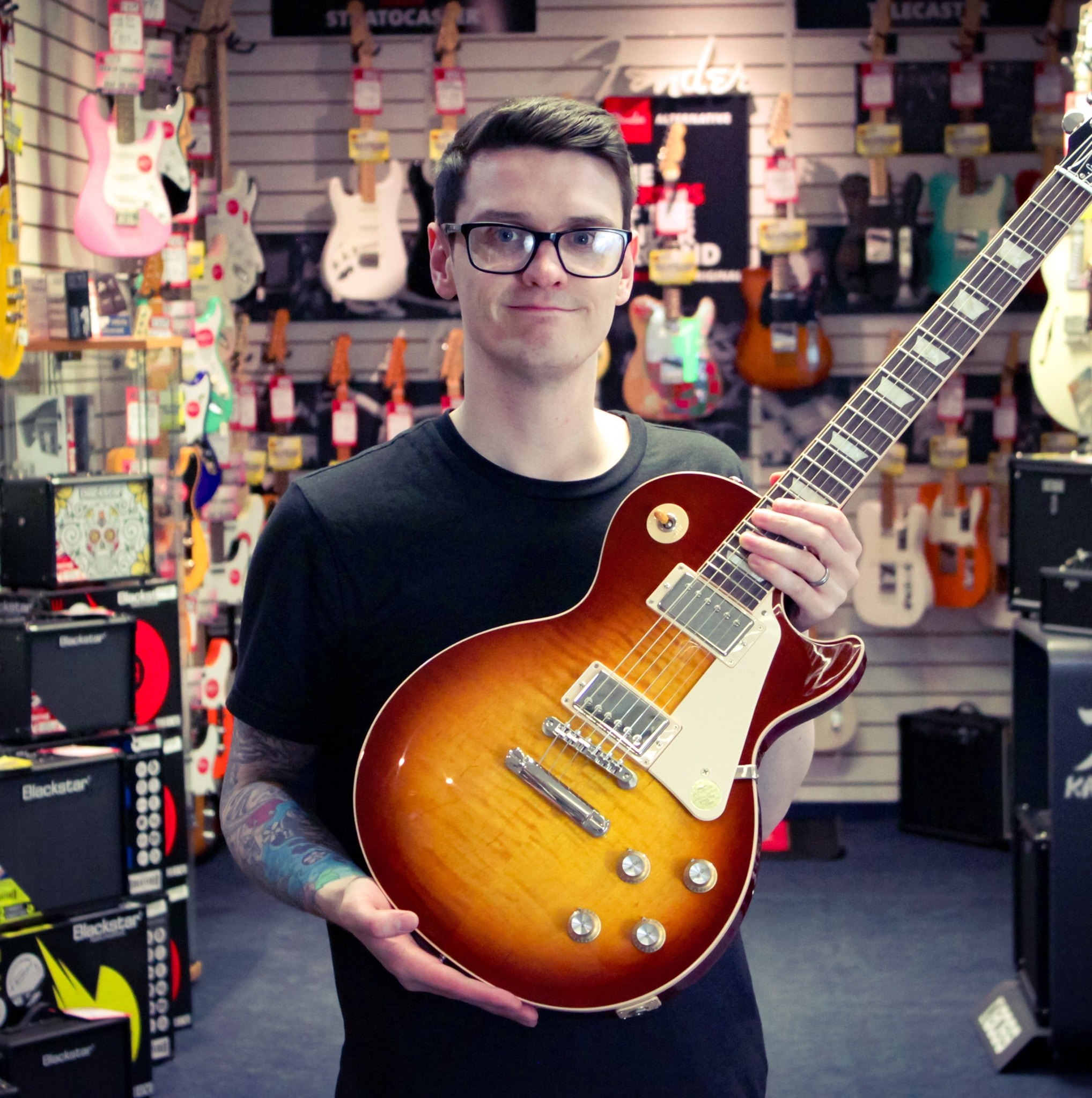
Daryl is a Senior Deals Writer at Guitar World, where he creates and maintains our 200+ buyer's guides, finds the best deals on guitar products, and tests the latest gear. His reviews have been featured in prominent publications like Total Guitar, Future Music magazine, and MusicRadar.com.
During his career, he has been lucky enough to talk to many of his musical heroes, having interviewed Slash and members of Sum 41, Foo Fighters, The Offspring, Feeder, Thrice, and more. In a past life, Daryl worked in music retail. For a little under a decade, he advised everyone from absolute beginners to seasoned pros on the right gear for their needs.
Daryl is also a fully qualified sound engineer, holding a first-class Bachelor's degree in Creative Sound Production from the University of Abertay.


![[from left] George Harrison with his Gretsch Country Gentleman, Norman Harris of Norman's Rare Guitars holds a gold-top Les Paul, John Fogerty with his legendary 1969 Rickenbacker](https://cdn.mos.cms.futurecdn.net/TuH3nuhn9etqjdn5sy4ntW.jpg)







